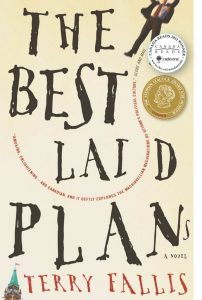Ruth E. Walker
I recently heard from a teen writer who was puzzled about self-publishing. She explained that she was on a committee looking at books to recommend to the Forest of Reading summer program at Ontario libraries. She was especially excited about a book from a local writer and presented it to her committee colleagues to review.
The committee agreed the book was really good and moved it forward as a recommended read to the Ontario Library Association (OLA). But my friend was disappointed to receive an email explaining that the book could not be included. The OLA has a policy to only include traditionally published works in that summer program. A novel, no matter how compelling, couldn’t be on the list if it was self-published by the author.
No matter how you feel about self-publishing versus traditionally published books, the OLA’s policy is not out of line with many organizations. And there is a good historical reason for it: vanity presses.
Feeding the Vanity Machine
Not so long ago, some printing companies called themselves publishers. Writers were attracted to those companies that would quickly publish their manuscripts without long waits to hear from an editor and no questions asked. Writers were guaranteed their book would be published…for a fee, of course. But the writers were confident of being able to sell their finished product. And all the money would go to them, not to some agent or publisher. Once they put out a lot of money to the “publisher.”
It seemed like a great idea.
 Of course, the inevitable happened to most of those writers. Basements and garages filled up with boxes of books that, once family and friends had been tapped out, couldn’t be sold to strangers.
Of course, the inevitable happened to most of those writers. Basements and garages filled up with boxes of books that, once family and friends had been tapped out, couldn’t be sold to strangers.
Not all vanity publications were in vain
There were amazing success stories: David Chilton’s self-published financial advice book The Wealthy Barber has sold over 2,000,000 copies to date. He even mentored sisters Janet and Greta Podleski, and their Looneyspoons cookbook has sold 850,000 copies to date. Many speakers on the “talk circuits” self-publish companion books that sell very well on the strength of their seminars and workshops.
In the past five or so years, the winds have shifted for self-published authors. When Terry Fallis won the 2008 Stephen Leacock Medal for Humour forThe Best Laid Plans, and then the 2011 CBC Canada Reads winner, he raised the profile for self-published authors in Canada. Even The Writers’ Union of Canada now accepts memberships from authors of self-published work (applicants must submit their book for review and it must meet professional standards to be accepted.)
It won’t be long before self-published titles are received everywhere with respect.
Make sure your book deserves respect
So you’ve decided to self-publish. Just because you’ve written a great story doesn’t mean it’s ready to go to press. If you truly respect your own work, you need to give it the time and focus it needs and deserves. If you truly respect your reader, ensure that you’re actually giving your reader a great story in great shape. And if you respect yourself as an author, act like you do.
Hire an editor. No, don’t rely on friends or family for this. A professional and skilled editor will help you refine your manuscript to publishable quality: a logical plot, compelling characters and a clean copy for the proofreader. An editor is not concerned with hurting your ego — an editor wants your book to succeed and if that means giving you tough news, well, that’s what will fix this book and make you an even better writer with the next book.
 Hire a proofreader. Here you might have friends or family with this skill but understand a proofreader is not just reading your story and looking for oopsies. A proofreader takes a different approach to an editor. A proofreader is looking for transposed numbers. Of chapter headings in slightly different fonts. Of two similar but different spellings of the same name. The things that trick the eye of even the best editor.
Hire a proofreader. Here you might have friends or family with this skill but understand a proofreader is not just reading your story and looking for oopsies. A proofreader takes a different approach to an editor. A proofreader is looking for transposed numbers. Of chapter headings in slightly different fonts. Of two similar but different spellings of the same name. The things that trick the eye of even the best editor.
Put it into your publishing budget: $800 to $2000 for editing and proofreading.
Things are changing
I’m an assessment volunteer for the Writers’ Union, reading some the self-published books submitted for membership. Some have been pretty darn good.
However, a few have been sadly in need of an editor. And a layout professional. And proofreader. The main criteria for acceptance is “would this book be comparable to a traditionally published book, with evidence of editing and professional appearance/layout?”
More often than not, the answer is yes. And that is heartening.
It means that those vanity presses are not getting as much business. Instead, we see quality book printers who also offer editing services to various levels. We see self-published books from writers who hire editors and proofreaders on their own. We see co-operative publishing ventures, where the cost and profits are shared by the printer and the author, and include editorial supports. That’s a nice balance of respect and a much better business model instead mass printing from unpolished manuscripts.
The publishing world is ever-shifting. How readers access their books is also ever-shifting just as the line between traditional and self-published books is blurring. Ultimately, readers — like my young friend — will set the pace and tone for choosing between those two approaches. And it seems that as long as a book captures a reader’s heart, it won’t matter how it made its way onto the bookshelf.
DID YOU KNOW?
Writescape self-publishes on a regular basis. At our Spring Thaw and Turning Leaves retreats, we prepare a 35-page workbook to support writers on retreat with inspiration, ideas, prompts, tips and helpful information.
 When Gwynn and I published Inspiration Station, our “retreat in a paperback” in 2010, we paid for a quality layout and print product. And you can bet that book was edited, proofed and re-proofed before it came off the press.
When Gwynn and I published Inspiration Station, our “retreat in a paperback” in 2010, we paid for a quality layout and print product. And you can bet that book was edited, proofed and re-proofed before it came off the press.
It’s sold out right now but plans are in the works to bring it out in an electronic version. Stay tuned.




Thanks for the article. I self-published my first book and have been very pleased with the result, although admittedly it’s been tough with the marketing. I 100% agree about hiring a professional editor – it was a big expense but absolutely worth it. I find typos or poor constructs to be insulting to the reader. Unfortunately, I know of other indie authors who refuse to lay out for the editor or proofreader, and then don’t want to hear about any mistakes in their finished book: “Publishing a book shouldn’t be just for the rich,” they will say. True enough, but their books give the self-published rest of us a poor reputation.
And thank you, Michele, for sharing your experience. While I appreciate hiring an editor is expensive, it should be factored in as part of the cost of self-publishing. Some editors will accept split payments over time because they recognize the need to budget. And never forget that the barter system is still alive and well. Again, depending on the editor, perhaps a writer has something to offer in exchange for professional editing services. By ensuring your book has been well edited is clearly showing respect to your readers. Congratulations. What is the name of your book and where is it available, Michele? (Marketing 101: promotion opportunities abound…)